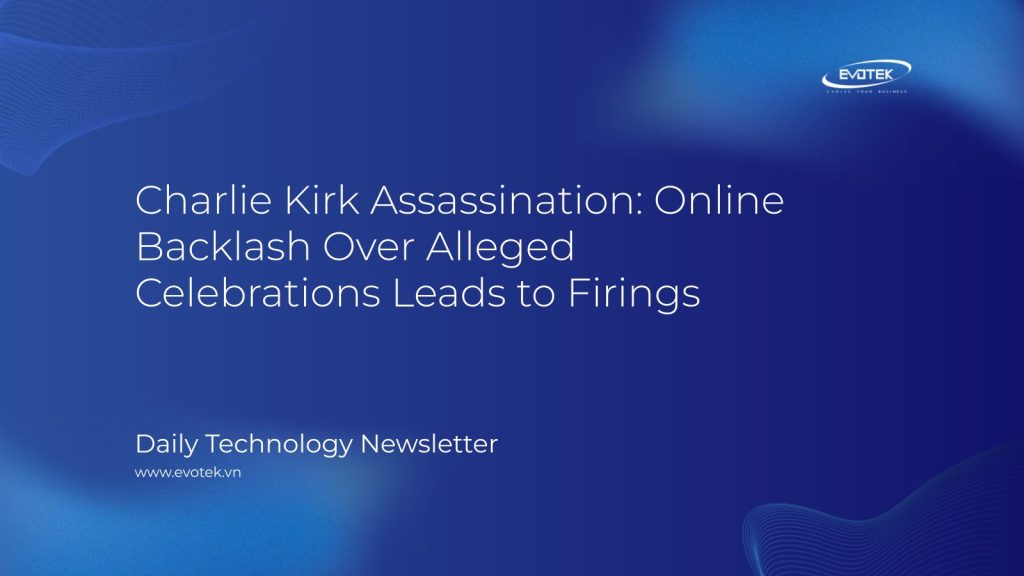The tragic assassination of Charlie Kirk, CEO and co-founder of Turning Point USA, has ignited a fierce online campaign, leading to dozens of individuals facing professional repercussions and intense harassment. A coordinated effort by conservative activists, Republican officials, and a doxxing website aims to publicly identify and punish those who allegedly celebrated or made controversial comments regarding Kirk’s death.
This widespread online response highlights the increasing ease with which social media posts, even from accounts with minimal reach, can be amplified, publicized, and used to target individuals. The campaigns demonstrate a potent new dynamic in political discourse, where online expression can swiftly translate into real-world consequences, including job losses and personal threats.
The Coordinated Online Campaign
Following Kirk’s death, prominent far-right influencer Laura Loomer, a U.S. Senator, and a website named “Expose Charlie’s Murderers” quickly drew attention to posts discussing the assassination. Loomer, hours after the fatal shooting, declared her intent on X to make anyone celebrating Kirk’s death “Famous,” warning of ruined professional aspirations.
The “Expose Charlie’s Murderers” site, anonymously registered, claims to have received nearly 30,000 submissions and plans to convert into a searchable database. Despite its assertion that it is not a doxxing site, its structure and stated aim—to create a “permanent and continuously-updating archive of Radical activists calling for violence”—suggests a clear intent to facilitate targeting. Critics note that many individuals featured on the site do not identify as activists, nor do their posts necessarily advocate violence.
An X account has also launched a “Trophy Case,” compiling a live-updated list of individuals reportedly fired due to their online comments about Kirk’s death. The campaign’s reach even extended to figures like MSNBC senior political analyst Matthew Dowd, who was fired after comments about Kirk’s rhetoric. President Donald Trump publicly acknowledged these firings, stating, “I hear they’re firing other people.”
Personal Impact and Harassment
The targets of these campaigns often face severe harassment. Canadian independent journalist Rachel Gilmore, whose post expressing hope for Kirk’s survival was among the first listed on the anonymous website, reported receiving a “tsunami” of threats, describing her experience as “a living hell.” Similarly, Rebekah Jones, a former Florida data scientist, contacted police multiple times regarding death threats she received after her comments about Kirk were published alongside her personal information on the “hit list” site.
Laura Edelson, an assistant professor at Northeastern University and director of the Cybersecurity for Democracy Project, characterized these actions as “absolutely a coordinated harassment campaign,” designed to target specific individuals.
Job Losses Across Sectors
The campaign has successfully pressured employers to terminate individuals. Republican Senator Marsha Blackburn of Tennessee notably called for the removal of a Middle Tennessee State University employee who expressed “ZERO sympathy” for Kirk’s death; the university confirmed the employee’s immediate firing. GOP Representative Nancy Mace of South Carolina also advocated for the termination of a public school teacher, who was subsequently confirmed to be no longer employed.
Private companies have followed suit. Freddy’s Frozen Custard & Steakburgers and the Carolina Panthers both let employees go over their social media posts. DC Comics even canceled a newly released “Red Hood” comic book series after its author, Gretchen Felker-Martin, allegedly posted, “Hope the bullet’s OK.” DC Comics stated that posts promoting hostility or violence are “inconsistent with DC’s standards of conduct.”
Legal experts, like Jeffrey Hirsch, a professor of labor and employment law at the University of North Carolina, note that private companies generally have broad discretion to fire employees for any reason, including social media content. For public sector employees, firings are also often justified if the speech is deemed “so egregious it disrupts operations.” However, the nuanced protections for public employee speech, as established in a 1987 Supreme Court case, introduce complexity, particularly in cases involving political comments.
Broader Implications of Online Backlash
The nature of the social media posts highlighted varies widely, from direct celebrations to more nuanced comments referencing Kirk’s past pro-Second Amendment stances. Regardless, the “Expose Charlie’s Murderers” site explicitly aims to facilitate firings, utilizing a privacy service and echoing past conservative initiatives like Turning Point USA’s “Professor Watchlist,” which previously led to harassment and threats.
Hank Teran, CEO of Open Measures, suggests the site’s name itself implies guilt, potentially inciting harassment. Northeastern professor Edelson points to the high political tensions across the country, which amplify emotional responses and “create a need to do something.” Whitney Phillips, assistant professor of information politics and ethics at the University of Oregon, explains that these campaigns contribute to a “false culture war framing,” turning disconnected critics into a perceived “spiritual enemy of conservatives, and by extension, of America itself.”

 日本語
日本語 한국어
한국어 Tiếng Việt
Tiếng Việt 简体中文
简体中文